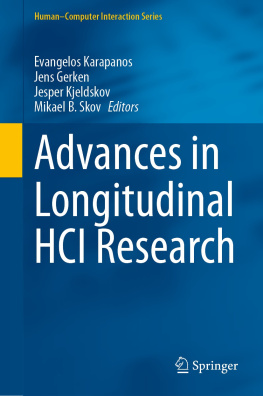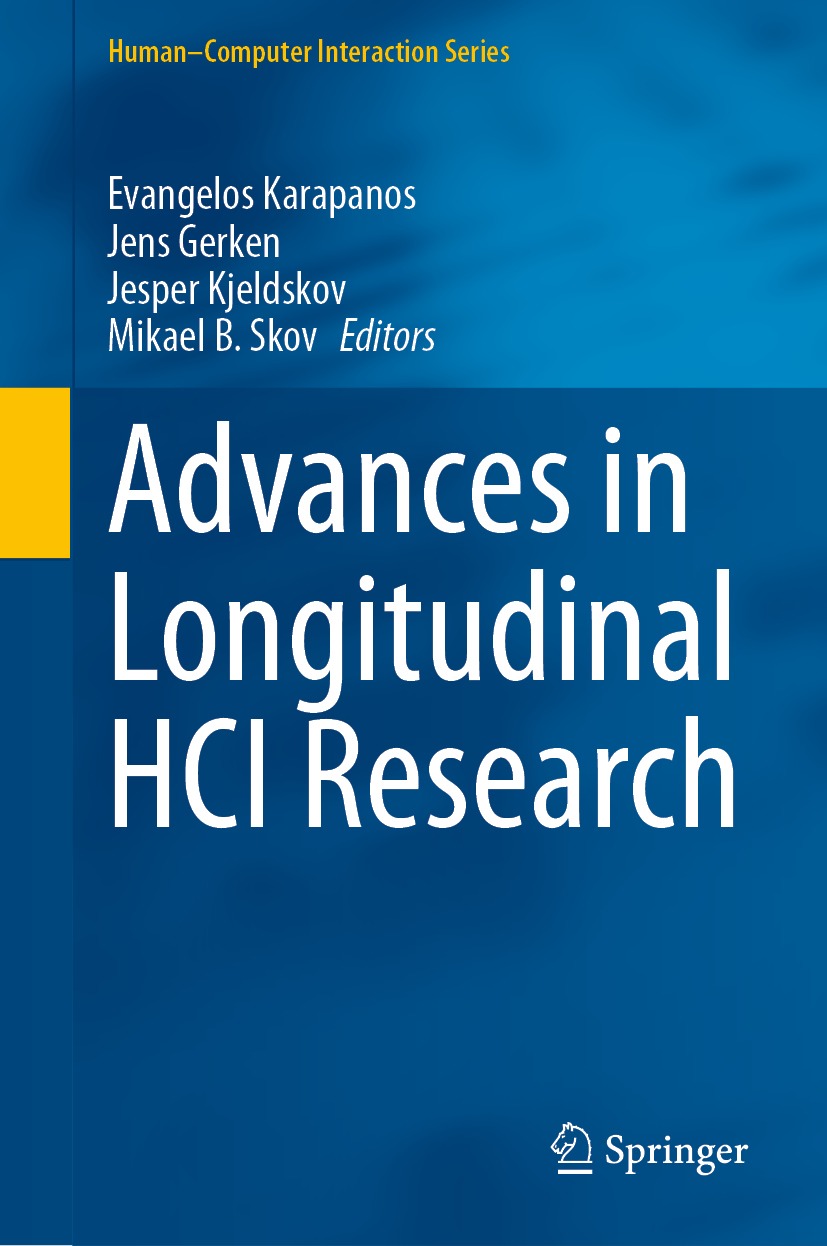Evangelos Karapanos (editor) - Advances in Longitudinal HCI Research (Human–Computer Interaction Series)
Here you can read online Evangelos Karapanos (editor) - Advances in Longitudinal HCI Research (Human–Computer Interaction Series) full text of the book (entire story) in english for free. Download pdf and epub, get meaning, cover and reviews about this ebook. year: 2021, publisher: Springer, genre: Politics. Description of the work, (preface) as well as reviews are available. Best literature library LitArk.com created for fans of good reading and offers a wide selection of genres:
Romance novel
Science fiction
Adventure
Detective
Science
History
Home and family
Prose
Art
Politics
Computer
Non-fiction
Religion
Business
Children
Humor
Choose a favorite category and find really read worthwhile books. Enjoy immersion in the world of imagination, feel the emotions of the characters or learn something new for yourself, make an fascinating discovery.
- Book:Advances in Longitudinal HCI Research (Human–Computer Interaction Series)
- Author:
- Publisher:Springer
- Genre:
- Year:2021
- Rating:3 / 5
- Favourites:Add to favourites
- Your mark:
Advances in Longitudinal HCI Research (Human–Computer Interaction Series): summary, description and annotation
We offer to read an annotation, description, summary or preface (depends on what the author of the book "Advances in Longitudinal HCI Research (Human–Computer Interaction Series)" wrote himself). If you haven't found the necessary information about the book — write in the comments, we will try to find it.
Longitudinal studies have traditionally been seen as too cumbersome and labor-intensive to be of much use in research on Human-Computer Interaction (HCI). However, recent trends in market, legislation, and the research questions we address, have highlighted the importance of studying prolonged use, while technology itself has made longitudinal research more accessible to researchers across different application domains.
Aimed as an educational resource for graduate students and researchers in HCI, this book brings together a collection of chapters, addressing theoretical and methodological considerations, and presenting case studies of longitudinal HCI research. Among others, the authors:
- discuss the theoretical underpinnings of longitudinal HCI research, such as when a longitudinal study is appropriate, what research questions can be addressed and what challenges are entailed in different longitudinal research designs
- reflect on methodological challenges in longitudinal data collection and analysis, such as how to maintain participant adherence and data reliability when employing the Experience Sampling Method in longitudinal settings, or how to cope with data collection fatigue and data safety in applications of autoethnography and autobiographical design, which may span from months to several years
- present a number of case studies covering different topics of longitudinal HCI research, from slow technology, to self-tracking, to mid-air haptic feedback, and crowdsourcing.
Evangelos Karapanos (editor): author's other books
Who wrote Advances in Longitudinal HCI Research (Human–Computer Interaction Series)? Find out the surname, the name of the author of the book and a list of all author's works by series.







